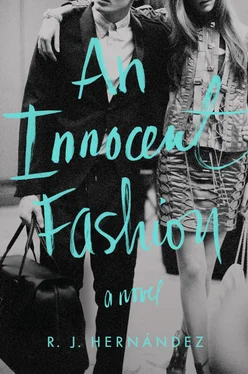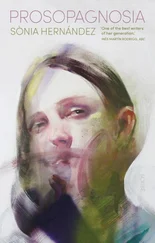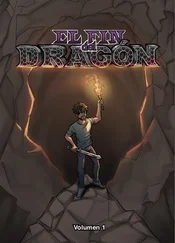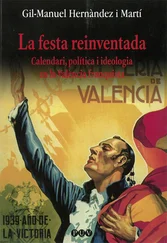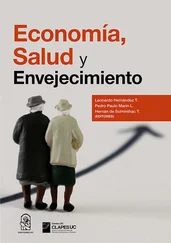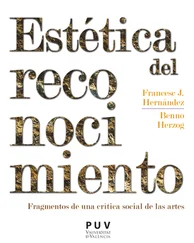The paper said, 5 Beekman . I stared up at the boarded wall, where a continuous grid of fading wheat-pasted posters bubbled up like decaying snakeskin. Above guerilla advertisements for coconut water juice boxes and Lana del Rey’s Born to Die album, a spray-painted scrawl alleged that I was, in fact, standing at 5 Beekman. I turned around. The street was quiet and gray, teeming along the edges with the rosy blush of an impending sunrise. Two boys were unloading a white van. They were lanky and tall — scruffy, wearing band Ts and skinny jeans — and after they slammed the back door of the van, they approached carrying large nylon bags and wheeling a hefty black trunk between them.
“Are you here for the Régine shoot?” I asked.
“This way,” they said, pointing to a plywood board that, like several others, was guarded by Lana Del Rey. She offered only jaded disinterest as the board swung open on a hinge, and when I followed the boys, the one in a Nirvana shirt said, “The actual front door’s been closed for like, fifty years.”
We entered a hallway illuminated by a dangling, flickering light. Having plunged through a tarnished ornamental wreath in the ceiling, it twirled in the middle of the hall from an exposed cable, encased in a brass cage that cast its prism-like shadow against a concrete wall. Gravity had decreed a similar fate for a musty damask wall-covering lying puddled below.
Ahead of me the boys creaked open a door. My heart stopped.
Blood velvet flowed as far as the eye could see — an endless ripple of plush red chairs. On either side, three gilded balconies were tiered like sand dunes, overlooking a shrouded stage. A tech crew was busy rigging a constellation of steel bars before the stage, like an empyrean jungle gym.
The first one gestured to the scaffolding. “Is the model going to be sitting up there?”
“They want to shoot her from above,” the other replied.
I caught my breath, clasping my hand over my mouth. Like an old-time movie projection, a reel flickered across my mind: a woman gliding across the stage like a billow of burning gossamer. Not two hours later, she was real, and her name was Belinda.
Belinda had red hair. She had freckles on her face and arms. She was six-feet-two-inches tall, and wore a size 9 1/2 shoe, according to the list of measurements in the black FORD -embossed portfolio she carried in her yellow Chloé handbag. Incidentally, she was also the current face of a half-dozen major fashion campaigns, including Valentino and Lanvin, and except for one occasion at the airport when I asked Joan Didion for the hour, Belinda was the first famous person I had ever really talked to. She was also seventeen years old.
Dorian, of course, knew Belinda from Paris — although at first he didn’t recognize her slender neck.
She was sitting in a tufted red velvet chair, one of eight spaced at even intervals along the counter of a wooden vanity, surrounded by rusted, dust-caked mirrors — the remains of an antiquated dressing room, repurposed now by Regine ’s Hair and Makeup artists. On one side of Belinda, Hair had laid out his blow-dryer, straightener, texturizing shears, thinning shears, clippers, squirt bottle, big brushes, small brushes, combs, hair razors; on the other, Makeup had arranged her eyeshadow, foundation, powder, concealer, mascara, eyeliner, brushes as bushy as a mustache and as thin as a single whisker, and miniature bottles of pigments in every shade, coral red and tangerine, Tiffany blue and alabaster white.
Hair was rick-racking bobby pins into Belinda’s red mane while Makeup reclined against the counter, using the underside of her wrist to test a color palette that the next moment was knocked to the ground by Belinda’s arm. Her transgressive limb dangled over the back of the chair as she turned around.
“Belgraves?” she exclaimed in a husky British accent.
Dorian lit up in surprise as she hopped down and tossed her arms around him, cell phone clutched in one hand. “Why do you get to waltz in so bloody late?”
“I’m not modeling today,” he said over their embrace. “I’m not modeling anymore at all. I’m an intern.”
“An intern?” She frowned. She stepped back and clenched his shoulders with an expression of mild concern. “What does that mean?”
“Ask him,” he pointed at me. “He’s an intern too.”
“Is he joking?” She turned to me. “Are you his agent?”
I shook my head, and she squinted back at Dorian: “You always were so strange .”
Makeup nudged Belinda to return to the Hair and Makeup chair.
“Are you still doing those little drawings?” she asked. Her floral chiffon miniskirt swayed as she pressed her knobby knee into the tufted chair. “He makes these wonderful little drawings,” she explained to Makeup, who was waiting for Belinda to make her face available once more. “They’ll be worth a fortune someday. Still,” she turned back to Dorian, “I think you’re crazy.”
“Please,” urged Makeup, “we have a lot of work to do.”
“Well, look at that face though!” Belinda faultlessly protested. “Don’t you think he’s crazy to give up modeling?”
Makeup indulged her with a hasty nod as Belinda slid back into the rusted chair with a creak. She crossed her legs into a lotus position and fanned out her skirt, wiggling her toes in her moccasin slippers. “How am I ever going to find a boyfriend when they’re all crazy?” She finally settled in with a toss of her hair, pulling a copy of Esquire across the edge of the counter into her lap. She pointed to the cover, and informed us, “I’m shopping for boyfriends.”
Hair took another strand and began to weave it through a bobby pin like a complicated fishing fly.
“You ended things with Brandon, then?” Dorian asked, leaning against the back of the adjacent chair.
I stood beside him as Belinda laughed, revealing a gapped tooth which reminded me of Madeline. “Of course not. We’re madly in love.” She shuffled through the magazine while Makeup lifted her chin. “I’m only seventeen though, and life ends at twenty-one. At least that’s what my agent says, and my mom too — only she thinks it’s thirty. I’m just thinking ahead, in case I have a midlife crisis and break up with him.”
Makeup had managed at last to touch her brush to Belinda’s face when the model spun around. “Does anybody have any gum?”
An exasperated breath from Makeup; she crossed her arms and waited for Dorian to pull a Wrigley’s peppermint package out of his pocket.
Belinda folded a piece into her mouth and flipped to the main fashion editorial, where Sean O’Pry was standing in a full suit on an unlikely precipice in the forest, seducing the camera with eyes that required a sizable paycheck just to open in the morning. “What’s your opinion of Sean O’Pry?” she asked.
Dorian peered over her shoulder and began to play with a bobby pin from the counter. “I thought you dated him already.”
“I thought so too once, after I read it in a magazine,” she recalled. “Do you ever think so too, about you, after you read it in a magazine?” Belinda looked up to rehearse a look of deep contemplation in the mirror, then to the detriment of Makeup’s already much-strained patience, puckered her lips and tried out several angles of her chin. “We did live in the apartments though, for a short while.”
I’d heard of model apartments, where agencies set up their promising young talents who were trying to make it in the industry. The idea always reminded me of a sleep-away summer camp, where instead of just one attractive counselor (every camp had at least one counselor who everyone crushed over, and tried to corner in a canoe on some pond), they were all attractive counselors. Instead of summer days spent diving into lakes and telling ghost stories, they roamed New York City with a portfolio of their own photographs, attending auditions, casting calls, and later on, all the best parties, before crashing home to a tent they shared with the future face of Maybelline — which was staked on a hill across from the future faces of Gucci and Armani — while each of them wondered if they would “make it,” or if they would get sent back after the summer to Brazil or Poland or whatever perfect provincial gene pool they called home.
Читать дальше
